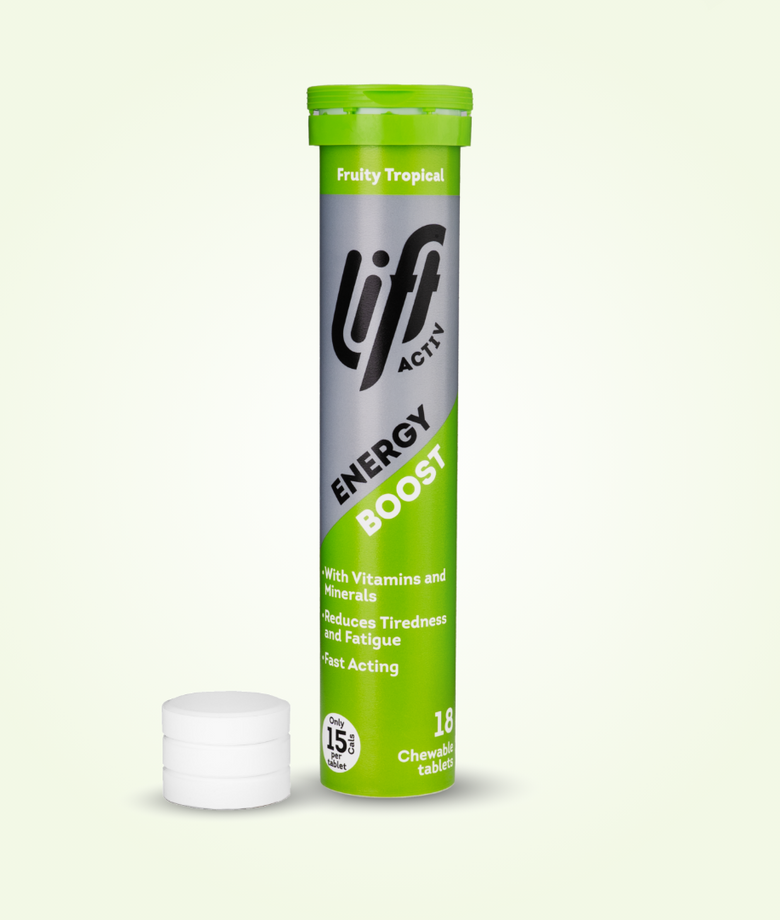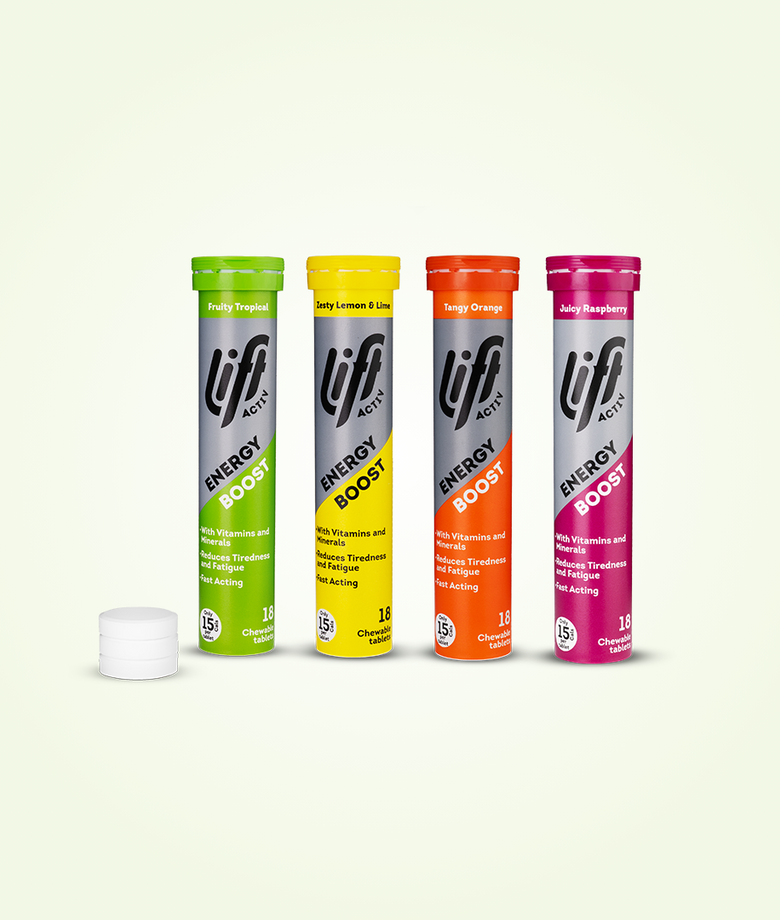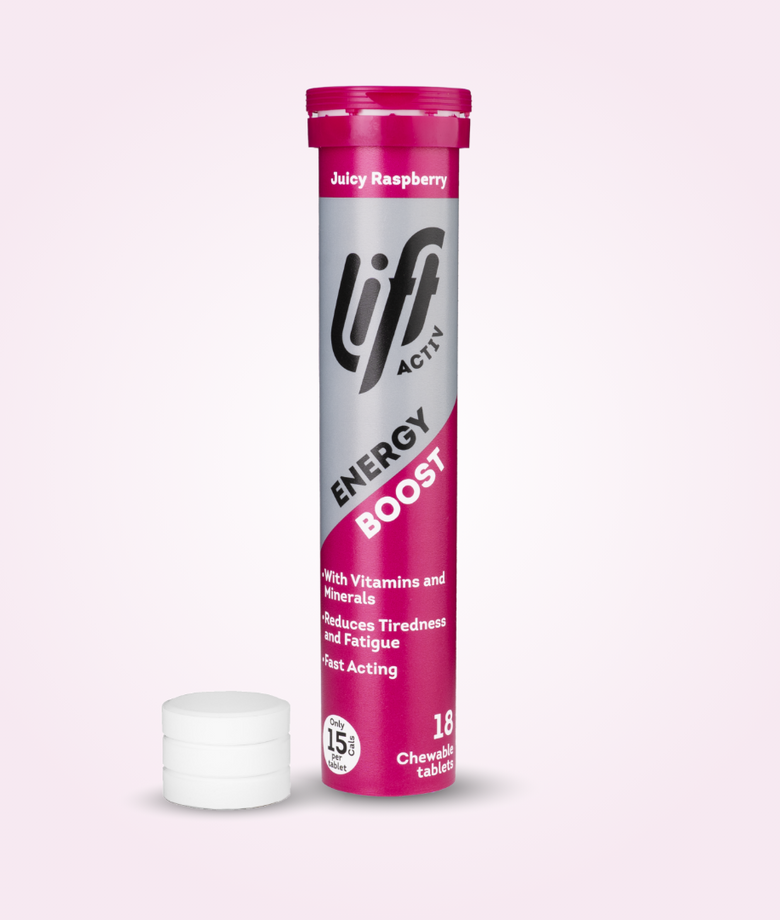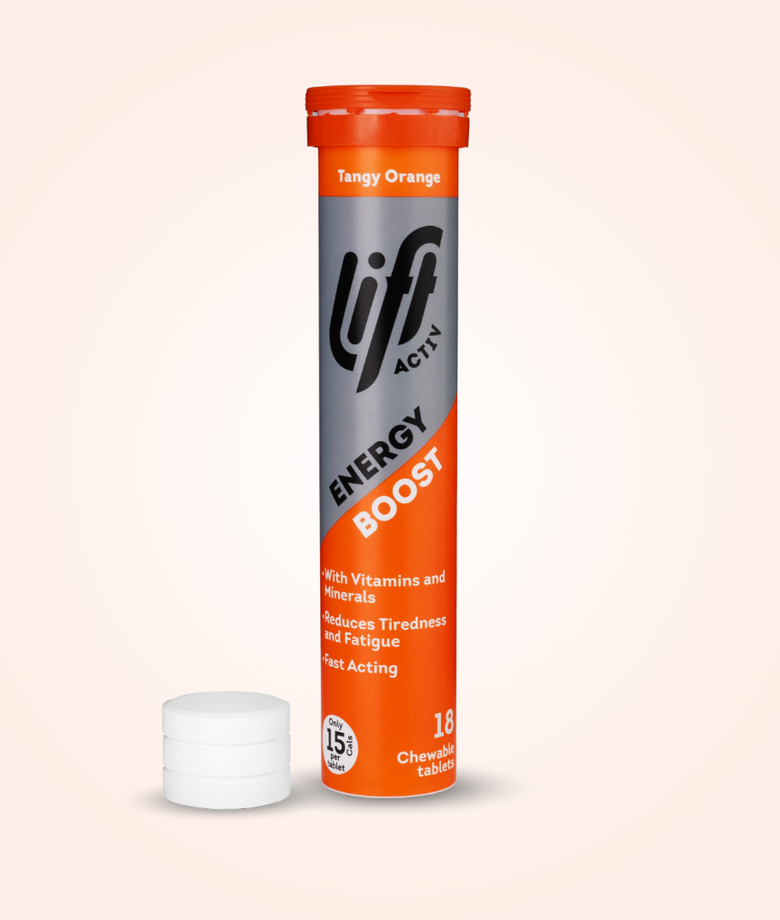Difference Between Glucose & Dextrose for Sport & Lifestyle
Introduction
As our specialist dietitian has with a focus on overall health and wellness, I've dedicated my career to helping individuals navigate the complexities of their health journey. Understanding the role of sugars in our bodies, is crucial for achieving optimal well-being. However our relationship with sugar can be confusing, as we often hear about blood sugar crashes, weight management, diabetes and more. But the truth is sugar Is not inherently bad, it is how our body processes and use sugar that is far more important. In this article, we'll take a comprehensive look at two sugars that play significant roles not only in low blood sugar management but also in exercise performance and as energy boosters: glucose and dextrose.
Glucose, , is the primary fuel source for our cells and is closely tied to our body's metabolic functions. Dextrose, a close relative of glucose, shares many similarities but also possesses unique properties that make it invaluable.. Its rapid absorption makes it especially useful for individuals dealing with low blood sugar levels, or looking to unlock an extra quick burst of energy making products like Lift invaluable additions to your health and vitality toolkit.
Throughout this guide, we'll explore the differences between glucose and dextrose, examining their chemical structures, physiological effects, and practical implications for enhancing performance during exercise. By gaining a deeper understanding of these sugars, you'll be empowered to make informed choices about your diet, blood sugar management techniques, and overall health.
Join me as we embark on this journey to uncover the nuances between glucose and dextrose, shedding light on the path toward better diabetes management, improved exercise performance, and enhanced quality of life.
Introducing glucose
When we eat, our digestive system breaks down the food to create glucose which is the body’s primary source of energy. Glucose is the most common form of simple sugar found in living organisms. Once we consume glucose and it is absorbed into the blood, we typically refer to it as blood glucose or blood sugar.
Glucose is necessary to keep the body functioning properly and is the body’s preferred energy source. Our brain relies heavily on glucose as its primary source of fuel, to keep us thinking sharp. Usually, our body makes glucose from foods rich in carbohydrates like bread, fruits, and dairy products. To help keep the brain on top form, glucose supplements, like Lift Activ Energy Boost with added vitamins minerals, can be a game-changer.
Glucose (C6H12O6) is a simple sugar that is naturally found in various foods, including fruit, vegetable, dairy, honey and grains.
How do We Process Glucose?
Our blood sugar levels rise and fall at different times of the day, depending on a variety of factors including but limited to; physical activities, especially following high intensity and/or long-lasting physical exercise, and what and when we last ate.
Food Breakdown
When we eat foods like bread, pasta, or fruit, or other complex carbohydrates our bodies break down the carbohydrates in these foods in our digestive system into a simply sugar called glucose. However this process can take up to72 hours depending on the type of food we consumer and the amount. Simple carbohydrates like bread or pasta are quicker and can breakdown as quickly as 30 minutes.
Absorption and Insulin Release
As we breakdown carbohydrates into glucose, it enters the blood stream from the intestines and travels through our bloodstream to give energy to all the cells in our body.
However without a hormone called insulin, which is produced by the pancreas, glucose cannot effectively enter our cells. This process helps to regulate blood sugar levels in the body. It acts like a key, allowing glucose (sugar) from the food we eat to enter our body's cells, where it's uses for energy.
Our body's cells use glucose for energy by a process called glycolysis. It's like a little factory inside our cells that turns glucose into energy that our body needs to function properly.
However, for someone living with diabetes, their body can have trouble managing glucose. In diabetes, either the body doesn't make enough insulin (Type 1 diabetes and sometimes type 2 diabetes) or it doesn't use insulin effectively (Type 2 diabetes).
Without enough insulin or if it doesn't work well, glucose can't get into the body's cells to give them energy. As a result, glucose builds up in the bloodstream, causing high blood sugar levels.
That's why it's important for people living with diabetes to manage their blood sugar levels carefully by monitoring their diet, taking medications if needed, and getting regular exercise. This helps to keep blood sugar levels in a healthy range.
Storage for Later
Although our primary source of energy of from glucose or bodies cannot constantly keep high levels of glucose in our bloodstream. Sometimes, when we have more glucose than we need right away, our body stores it for later in a form called glycogen. Think of glycogen like a backup energy source that our body can use when we haven't eaten for a while.
The liver is the central storage unit and releases glucose back into the bloodstream when we need it. Our muscles also store glycogen readily available for when we need energy to move or for use during activities. Overall, our body is really good at using glucose to give us the energy we need to stay healthy and active.
Glucose in exercise
Glucose is essential during exercise to fuel muscle activity and support optimal performance. Ensuring an adequate supply of glucose through carbohydrate-rich foods or supplements.
As mentioned above your body stores glucose in the form of glycogen in the liver and muscles. However as we exercise and our muscles contract, they demand more energy. Our bodies cleverly breaks down glycogen back into glucose to meet this demand and releases back into the blood stream
Drinks, gels or glucose tablets such as Lift Activ Energy Boost Chews can help sustain energy levels and enhance exercise performance.
All Lift product are made from dextrose (glucose’s cousin!)
Introducing Dextrose
Glucose occurs naturally in two distinct types of molecular arrangements known as L-glucose and D-glucose isomers. These glucose isomers both contain identical molecules but are arranged in a mirror reflection of each other. While D-glucose isomer polarises light clockwise, the L-glucose isomer polarises light anticlockwise.
D-glucose is found naturally in plants and vegetables. L-glucose, on the other hand, does not occur naturally in nature, but can be synthesised in the laboratory. D-glucose is often referred to as Dextrose they are one and the same and are biochemically identical to the glucose are bodies need.
Therefore dextrose is a type of sugar that our bodies can use for energy. It's often made from corn and is similar to the sugar our bodies naturally produce. Dextrose is sometimes used in medical treatments, especially for quickly raising low blood sugar levels in people with diabetes. So, think of dextrose as a fast-acting source of energy that can help keep your body running smoothly when you need a boost.
Dextrose is a naturally occurring sugar
Dextrose is a form of glucose found in naturally occurring foods such as corn, fruits, and honey. Whilst dextrose, sucrose and fructose are all simple sugars, the impact each has on blood sugar levels can vary. Due to its molecular makeup, dextrose scores 100 on the glycaemic index as it raises blood glucose levels very quickly. Comparatively, sucrose and fructose score 65 and 19 on the GI scale.
Dextrose is also about 20% less sweet tasting than sucrose, which is why sucrose is often used as a sweetener in processed foods.
According to the Sugar Association, the majority of dextrose in foods is derived from corn starch. You can find dextrose in many foods, desserts, drinks, snacks, and baked products. It is especially favoured in the food industry for its swelling and preservative benefits while leaving the end product moderately sweet.
Where is dextrose used?
Dextrose is used in various ways:
- Sports Drinks and Energy Products: Dextrose is often included in sports drinks and energy bars to provide a quick source of energy for athletes and individuals engaging in intense physical activity.
- Electrolyte Replacement: Some sports drinks and energy products containing dextrose also provide electrolytes such as sodium, potassium, and magnesium, which are lost through sweat during exercise. Electrolytes help maintain fluid balance, muscle function, and nerve signalling, contributing to overall performance and hydration status.
- Medical Treatments: dextrose is commonly used in medical treatments or in diabetes management to raise low blood sugar levels (hypoglycaemia). It's available in the form of dextrose tablets, gels, or injections, which can be administered quickly to provide a rapid source of glucose to the body. Lift Glucose Tabs and Shots can be taken as an oral hypo treatment.
- Food and Beverage Industry: Dextrose is used as a sweetener and food additive in a wide range of products, including baked goods, candies, beverages, and processed foods.
- Brewing and Fermentation: Dextrose is commonly used in brewing beer and other fermentation processes to provide yeast with a readily fermentable source of sugar.
- Pharmaceutical Applications: Dextrose is also used in drug formulations.
Overall, dextrose plays a versatile role in various industries and applications, serving as a source of quick energy and a functional ingredient in many products.
The role of dextrose in exercise
Dextrose is commonly used in sports as a source of quick energy to fuel athletic performance and support recovery. Here are some ways dextrose is used in sports:
- Energy Boost: Dextrose is often included in sports drinks, energy gels, and chews to provide a rapid source of carbohydrates for athletes before, during, or after exercise. Consuming dextrose during exercise can help maintain blood sugar levels, delay fatigue, and improve endurance by providing fuel for working muscles.
- Recovery: After intense exercise, consuming dextrose along with protein can help replenish glycogen stores in muscles and promote muscle recovery. Dextrose helps stimulate insulin release, which enhances the uptake of glucose and amino acids into muscles, supporting muscle repair and growth.
- Hypoglycaemia Prevention: During prolonged or intense exercise, athletes may experience low blood sugar levels (hypoglycaemia) due to increased energy expenditure. Consuming dextrose-containing products can help prevent or alleviate symptoms of hypoglycaemia and sustain energy levels during extended workouts.
Overall, dextrose is valued in sports for its rapid absorption and ability to provide a quick and easily accessible source of energy, making it a popular choice among athletes looking to optimise performance and recovery.
The benefits of combining dextrose with vitamins and minerals
When it comes to supporting your energy levels and overall health, a supplement containing dextrose, along with vitamins and minerals, such as Lift Activ Energy Boost Chews can be quite beneficial. The added vitamins and minerals in the form of a Vitamin B complex helps to reduce tiredness and fatigue and an upweighted dose of Vitamin C contributes to maintenance of the normal function of the immune system during and after intense physical activity with a daily intake of 200mg. Added power house mineral Magnesium also contributes to a reduction of tiredness and fatigue and electrolyte balance, enabling you to get the most out of your day.
Here's why:
- Energy Boost: Dextrose gives you a quick burst of energy by providing your body with fast-absorbing carbohydrates. It's like a little pick-me-up when you're feeling tired or low on energy.
- Nutritional Support: a supplement like this can also pack in essential vitamins and minerals that your body needs to stay healthy and function at its best. These nutrients help with things like keeping your immune system strong and helping your body use energy efficiently.
- Recovery Assistance: After a workout, this supplement can help your muscles recover faster by replenishing their energy stores. It can also reduce any feelings of fatigue you might experience post-exercise. An increased daily intake of 200mg of Vitamin C contributes to maintenance of the normal function of the immune system during and after intense physical activity.
- Convenience: One of the great things about a supplement like this is how easy it is to use. You can take it with you wherever you go and enjoy a quick energy boost whenever you need it most. No need to added water, simply pop in your mouth and chew.
Just remember, supplements are not a replacement for a healthy diet. So, be sure to continue eating a variety of nutritious foods to get all the vitamins, minerals, and energy your body needs.
So in the battle of dextrose vs. glucose who wins?
Now you have met glucose and dextrose who wins…
Biochemically, D-glucose and dextrose are identical. This makes glucose the most efficient source of energy for the body, as unlike other simple sugars, dextrose can be absorbed directly into the bloodstream to improve blood sugar levels, maintain normal brain function and aid muscle recovery.
In the battle of dextrose vs. glucose, there isn't necessarily a winner because they serve different purposes. Glucose is the natural sugar that our bodies use for energy, found in many foods we eat. Dextrose, on the other hand, is a form of glucose that's often used in medical treatments, for diabetes management, or performance during exercise, because it’s particularly effective in quickly raising low blood sugar levels.
Because dextrose is a type of glucose, they're related—remember dextrose is a close cousin to glucose. So, while glucose is essential for our everyday energy needs, dextrose plays a crucial role in situations where a rapid increase in blood sugar levels is needed. Both have their place in supporting overall health and well-being!
That’s why Lift uses dextrose!
Question Time!
Now we have compared dextrose and glucose, it's time to answer some key questions asked by you, the public, let’s get going…
1. Why do glucose tablets and gels use dextrose instead of glucose?
Glucose tablets and gels, such as Lift Glucose Tabs and Shots use dextrose because dextrose is a fast-acting form of glucose that can quickly raise blood sugar levels when they drop too low. Since dextrose is essentially another name for glucose, it provides a rapid source of energy that the body can easily absorb, helping to counteract the symptoms of low blood sugar (hypoglycaemia) and prevent more severe complications. It can be used in exercise to enhance performance too, giving muscles the boost of energy that they need!
2. How much does dextrose raise blood sugar?
Dextrose raises blood sugar quickly It can also be used in sports in a similar way to rapidly increase blood glucose, aka sugar, levels.
The amount of glucose or carbohydrates needed during prolonged exercise, such as running, can vary depending on factors such as intensity, duration, individual metabolism, and personal preferences. However, as a general guideline, consuming about 30-60 grams of carbohydrates per hour of exercise can help sustain energy levels and prevent fatigue during prolonged activities like running.
It's essential to choose easily digestible carbohydrate sources, such as sports drinks, energy gels or tablets such as Lift Glucose Activ Energy Boost, bananas, or energy bars, to avoid gastrointestinal discomfort during exercise.
3. Is dextrose better for you than sugar?
Dextrose and sugar are both types of carbohydrates, and they provide the body with energy. In terms of which is "better," it depends on the context.
Dextrose, being a form of glucose, is quickly absorbed into the bloodstream and can raise blood sugar levels rapidly. Regular table sugar, also known as sucrose, is a combination of glucose and fructose. It's typically absorbed more slowly than dextrose, which means it won't raise blood sugar levels as quickly. In the league of GI, sucrose has a slower absorption, 65, vs. dextrose which is rapidly absorbed by the body, giving it a value of 100!
So, in the context of managing low blood sugar, needing that extra burst of energy for an intense sporting activity, dextrose may be considered "better" because of its rapid action. However, in other situations, such as general dietary consumption, it's important to moderate intake of both dextrose and sugar to maintain overall health and prevent spikes in blood sugar levels.
Lift Activ Energy Boost contain natural glucose, in the form of dextrose, your body's preferred source of sugar.
4. Does dextrose raise blood sugar?
Yes, dextrose raises blood sugar levels. Dextrose is a type of sugar that the body can quickly absorb and use for energy. When someone consumes dextrose, it enters the bloodstream and causes blood sugar levels to increase. This can be helpful in situations where someone living with diabetes has low blood sugar (hypoglycaemia) and needs to raise their blood sugar levels quickly to feel better. It can also help in sports training as it is quickly absorbed by the body.
5. Is dextrose a natural sugar?
Yes, dextrose is a natural sugar. It's made from corn, which is a plant that grows in nature. When cornstarch is broken down through a process called hydrolysis, it forms dextrose. Dextrose is chemically identical to the sugar our bodies naturally produce, called glucose. So, even though dextrose may be processed from corn, it's still considered a natural sugar because it's made from a plant source!
6. How healthy is dextrose?
Dextrose, like other sugars, provides the body with energy, which is essential for daily activities and bodily functions. When used appropriately, it can be beneficial for athletes or people who are experiencing low blood sugar. Dextrose is absorbed quickly into the body raising blood sugar levels, providing a quick burst of energy.
However, it's important to consume dextrose in moderation, just like any other form of sugar. Consuming too much dextrose or other sugars regularly can lead to weight gain, dental issues, and an increased risk of chronic conditions like type 2 diabetes and heart disease.
Overall, while dextrose can be helpful in certain situations, it's essential to balance its intake with a healthy diet and lifestyle to maintain overall health and well-being.
7. How do you turn dextrose into glucose?
Dextrose is chemically identical to glucose, so there's no need to turn dextrose into glucose because they are essentially the same thing. Both dextrose and glucose are types of sugar that the body can use for energy. When you consume dextrose, it's rapidly absorbed into the bloodstream and used by the body just like glucose would be. So, in short, dextrose doesn't need to be converted into glucose because it already is glucose.
And that’s a wrap!...In summary…
Glucose and dextrose are essentially the same thing—they're both types of sugar that provide the body with energy. However, dextrose is a form of glucose that's often used in medical treatments, managing diabetes if you have a low blood glucose, or in sports for enhanced performance. Dextrose is rapidly absorbed into the bloodstream, making it an effective and efficient way to provide the body with a quick source of energy. In summary, while both glucose and dextrose serve similar purposes, dextrose is preferred in situations where a rapid increase
in blood sugar levels is needed, such as during medical emergencies or especially for athletes needing a quick energy boost. And that’s why Lift Range of Glucose Products are made from dextrose!
Lucy Diamond, Lift's Specialist Diabetes Dietitian






